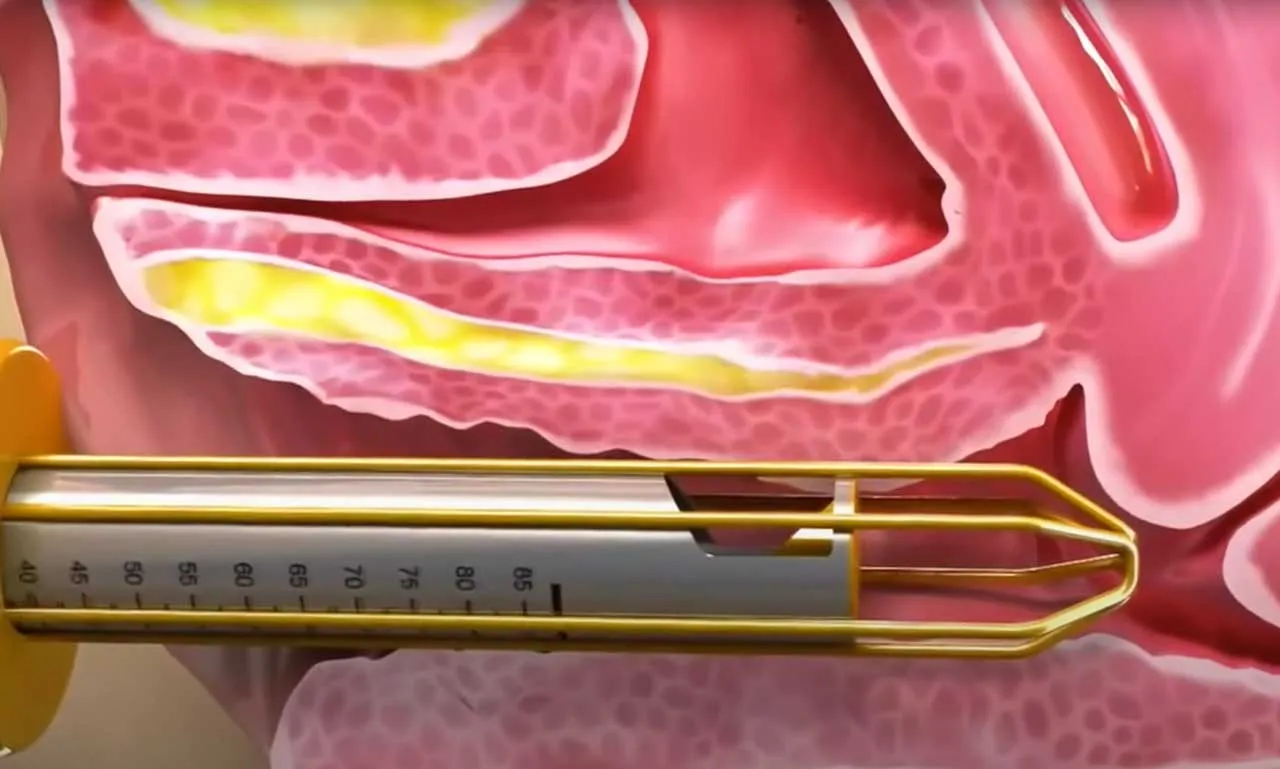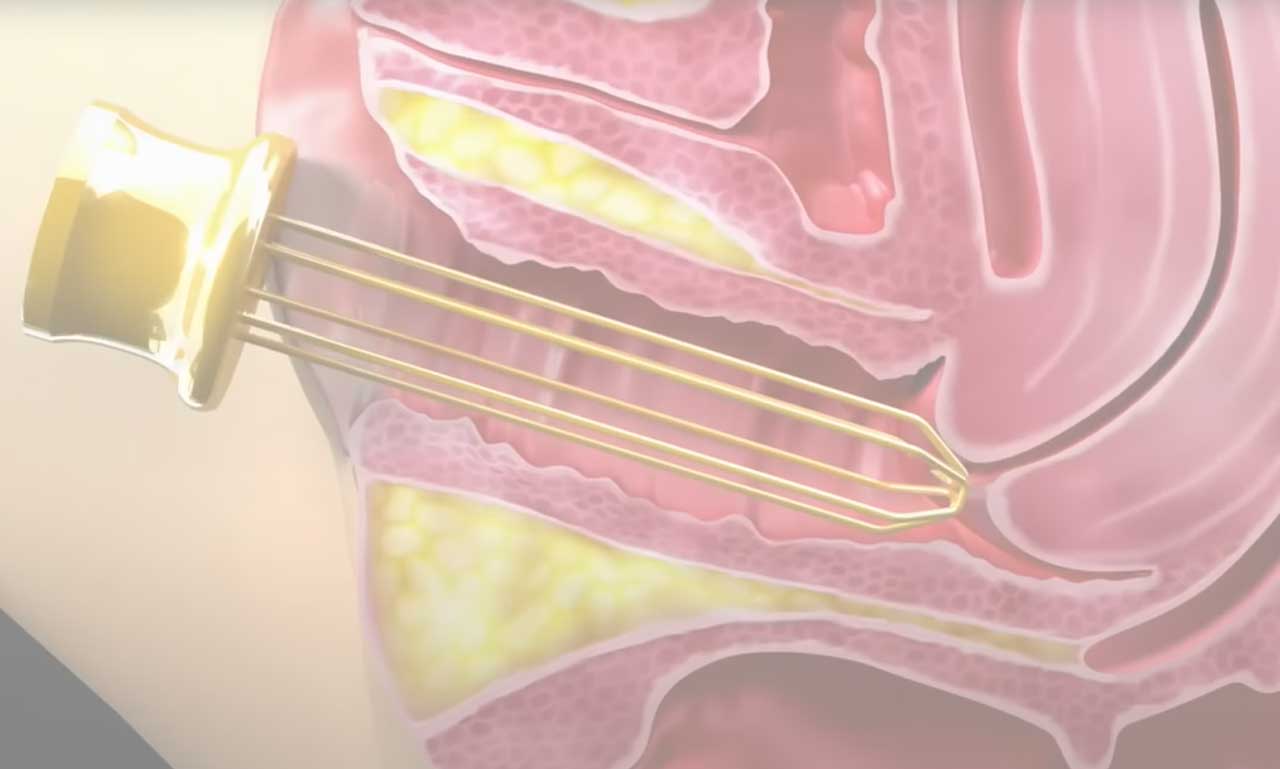Content approved by: Cristina Signes
Why Nu-V Pelvic Organ Prolapse with Laser Treatment is right for you
Rating: Over 87% excellent
Regulated: CQC Registered
Expert: Doctor-Led Team
Affordable: Single for £599 and triple for £1,200 (£400 per treatment)
Women Led: For Women by women
Scope of Nu-V Pelvic Organ Prolapse with Laser Treatment
Treatment time: 30 minutes
Anaesthetic: None
Results may last: Up to 2 years*
* Varies depending on individual factors and severity of prolapse
Back to work: Immediately
Downtime: see below*
Avoid strenuous exercise for 5 days
No of treatments: 3 *
Tissue Strengthening
Moisture Restoration
Improved Sexual Comfort
No surgery, no scarring
Completely non-invasive, with no incisions or sutures required.
Minimal Discomfort, No Infection Risk



Minimally Invasive Pelvic Organ Prolapse with Laser Treatment – Safe, Effective, and No Downtime

What?
What is Nu-V CO2 Pelvic Organ Prolapse with Laser Treatment
How?
How does Nu-V Pelvic Organ Prolapse with Laser Treatment work?
Unlike traditional POP treatments, which often require lengthy recovery or have side effects, Nu-V Prolapse Laser is convenient and performed in an outpatient setting. No pre-procedure preparation is necessary, and the entire process is comfortable and quick.
Who?
Who Is an Ideal Candidate for Nu-V Pelvic Organ Prolapse with Laser Treatment ?
This laser treatment is ideal for women experiencing mild to moderate POP who want to avoid surgery or pessary use. It is especially suitable for those looking for a minimally invasive, quick solution with little to no downtime. However, for severe cases of POP, surgical intervention may still be the best option.
Ideal Candidates:
Women with mild to moderate prolapse symptoms.
Those who wish to avoid surgery or the use of pessaries.
Women seeking a minimally invasive, comfortable treatment option.
Those with symptoms like discomfort, pressure, or bladder/bowel function issues due to prolapse.
For severe prolapse, this treatment may offer some symptom relief but is not a substitute for surgery. However, many women find that it helps delay the need for more invasive interventions and improves their overall quality of life.
What else?
Research behind Nu-V Pelvic Organ Prolapse with Laser Treatment
The Use of Laser in Urogynaecology – reviews the use of lasers, specifically CO₂ and Er lasers, in treating urogynaecological conditions like pelvic organ prolapse (POP), urinary incontinence, and genito-urinary symptoms of menopause. The authors analyze 25 studies and conclude that while lasers may seem effective for conditions like POP and urinary incontinence, there is insufficient evidence from high-quality randomized control trials to validate their safety and efficacy. Potential risks include vaginal burns, scarring, and pain. The study calls for more formal evaluation before widespread adoption.
Symptoms those are treated by Pelvic Organ Prolapse with Laser Treatment
Vaginal Laxity
Mild to Moderate Pelvic Organ Prolapse
Reduced Vaginal Elasticity
Postpartum Vaginal Laxity
Loss of Tone and Firmness
Pelvic Discomfort and Pressure
Pelvic Floor Muscle Weakness
Contraindications for Pelvic Organ Prolapse with Laser Treatment
Pregnancy or Recently Postpartum
Active Infections
Vaginal or Cervical Lesions
Severe Pelvic Organ Prolapse
Blood-Thinning Medications
History of Radiation or Reconstructive Pelvic Surgery
Impaired Wound Healing and Keloid Formation
Autoimmune Disorders
Active Pelvic Inflammatory Disease (PID)
Uncontrolled Diabetes
Nu-V Pelvic Organ Prolapse with Laser Treatment Pricing
Single
Nu-V- Optional: FREE 20 min Nurse / Patient Adviser consultation
- Required: consultation with Dr. Farzana Khan (choose one)
- Option A: 10 min telephone call: £45. If you book treatment after the call, our care coordinator will take a £50 booking fee (total non-refundable deposit: £95).
- Option B: 20 min face-to-face doctor consultation: £95 (non-refundable deposit).
- Single treatment: Nurse-led £599 | Doctor-led £799
- Non-refundable deposit: £95. This £95 is deducted from your final treatment fee (£599 nurse-led / £799 doctor-led).
Triple
Nu-V Payment Plan- Optional: FREE 20 min Nurse / Patient Adviser consultation
- Required: consultation with Dr. Farzana Khan (choose one)
- Option A: 10 min telephone call: £45. If you book treatment after the call, our care coordinator will take a £50 booking fee (total non-refundable deposit: £95).
- Option B: 20 min face-to-face doctor consultation: £95 (non-refundable deposit).
- Triple package (3 treatments): Nurse-led £400 × 3 (£1200) | Doctor-led £600 × 3 (£1800)
- Non-refundable deposit: £95. This £95 is deducted from your final treatment fee (deducted from the 3rd treatment).
Annual
Nu-V Top-up- Optional: FREE 20 min Nurse / Patient Adviser consultation
- Required: consultation with Dr. Farzana Khan (choose one)
- Option A: 10 min telephone call: £45. If you book treatment after the call, our care coordinator will take a £50 booking fee (total non-refundable deposit: £95).
- Option B: 20 min face-to-face doctor consultation: £95 (non-refundable deposit).
- Annual top-up: Nurse-led £400 | Doctor-led £600
- Non-refundable deposit: £95. This £95 is deducted from your final treatment fee (£400 nurse-led / £600 doctor-led).
Do You Have Any Questions about Nu-V Pelvic Organ Prolapse with Laser Treatment

Where can I get the Nu-V Pelvic Organ Prolapse with Laser treatment?
Nu-V is available on all of our clinics.
What equipment do you use for the Nu-V Pelvic Organ Prolapse with Laser Treatment ?
Is Nu-V Pelvic Organ Prolapse with Laser treatment a cosmetic procedure ?
Is there any pain or downtime after the Nu-V Pelvic Organ Prolapse with Laser treatment ?
Some Patients have report a mild tingling, sunburn sensation or itching sensation for a few days, this is perfectly normal. Some patient report this is comparable to intimate waxing. You will have direct contact with a Nurse should you have any post-treatment concerns.
Is the Nu-V Pelvic Organ Prolapse with Laser treatment painful ?
Does this mean I don’t need to have Labiaplasty ?
How many treatments will I need ?
What happens aesthetically ?
How soon can I have sex after the treatment ?
We recommend 4-5 days, but you will know when you are ready. Ask your Nurse at the point of treatment if you are unsure.
How do I know if it works ?
How soon will I see results ?
How long does the treatment take ?
Is this treatment suitable for everyone?
Nu-V is suitable for the majority of our patients, but just to make sure all new patients undergo a free initial telephone consultation with our specialist nurse.
How does Nu-V Pelvic Organ Prolapse with Laser work?
The best thing to do is watch the explainer video, it will show you everything you need to know.
Is Pelvic Organ Prolapse with Laser treatment safe?
What can I expect after the treatment?
What makes Nu-v Pelvic Organ Prolapse with Laser such a good treatment ?
Nu-V is clinically proven, long lasting, highly effective and the results get progressively better.
How our Pelvic Organ Prolapse with Laser Treatment service works?
At The Women’s Health Clinic, we firmly believe in putting you, our patient, at the heart of any decision-making. Our practitioners will closely work with you and discuss your symptoms, medical history and treatment plan. It all begins with a free telephone consultation for 20 minutes with one of our specialist nurse advisors. They will talk you through what we do, our processes and how we work. Before you make any commitment, we want you to know what we can offer so you can decide if we are the best fit for you.
1 - Free telephone consultation
We provide a no obligation free telephone consultation where our nurse will discuss our service with you an answer any question.
2 - Book an Appointment
You will be booked in with our specialist nurse or doctor. You will also be sent questionnaires before your appointment so you can tell us a little more about you
3 - Initial Consultation
During your appointment, you will have an in-depth consultation on symptoms and symptom management. They will explore some treatment options for you to make a well-informed decision.
4 - Treatment
If you proceed with treatment with consent, your practitioner will carry out the treatment.
5 - Feedback
6 - Follow up
A follow up appointment will be booked to make sure you are getting on with your prescription. Any adjustments can be made.

Nu-V Pelvic Organ Prolapse with Laser Treatment Steps
1
Pelvic Organ Prolapse with Laser Treatment - Free Telephone Consultation
2
Pelvic Organ Prolapse with Laser Treatment - Preparation
Forms and Questionnaires:
Prior to your face-to-face consultation, you will need to complete several forms, including full medical history, gynecological history, and sexual health index questionnaires. These must be submitted before your appointment to ensure the practitioner has all necessary details for your assessment.
Medical Considerations:
If you are taking blood-thinning medications (e.g., aspirin), you must discontinue use 5 days prior to the treatment to minimise bleeding. Avoid sexual activity for 24 hours before the procedure.
Additional Screening:
Your practitioner will review recent infections or conditions that might contraindicate treatment, such as severe prolapse or untreated STIs.
3
Pelvic Organ Prolapse with Laser Treatment - Face-to-Face Consultation
Before the Nu-V treatment, the medical practitioner will review the information provided in the forms and notes from your initial consultation with the nurse.
A physical internal examination will be conducted to assess your condition. The practitioner will have an open discussion with you, addressing any questions or concerns you may have. They will provide all necessary information and offer professional advice.
You will be given the choice to take time to consider the treatment. If you decide to proceed, a consent form will be signed before moving forward.
4
Pelvic Organ Prolapse with Laser Treatment - During the Session
Positioning and Comfort:
You will be placed in a comfortable lithotomy position (similar to a smear test). A sterile, single-use probe is inserted into the vaginal canal.
Laser Application:
The CO2 laser device emits controlled laser energy to the vaginal tissue, stimulating collagen production. This process tightens and rejuvenates the vaginal walls. The laser is rotated 360° to ensure even tissue coverage, and the procedure typically takes about 10-15 minutes.
Minimal Discomfort:
The treatment is generally painless, although mild discomfort may be felt.
5
Pelvic Organ Prolapse with Laser Treatment - Aftercare
Immediate Aftercare:
After treatment, patients can return to normal activities but should avoid sexual intercourse and strenuous exercise for 7 days. It’s important to keep the treated area clean, avoiding soaps and scented products for at least 2 hours.
Expected Side Effects:
Mild soreness, spotting, or a dull ache in the vaginal area may occur but should subside within a few days. Any persistent or unusual symptoms (e.g., foul-smelling discharge) should be reported to the GP immediately.
6
Pelvic Organ Prolapse with Laser Treatment - Results and Maintenance
Progressive Improvement:
Results begin to show within the first few weeks, with full benefits typically seen after 3 months. The treatment helps improve vaginal tightness, lubrication, and urinary incontinence. Many patients also report enhanced sexual satisfaction.
Maintenance Treatments:
For optimal results, a series of 3 treatments spaced 4-6 weeks apart is recommended. Maintenance sessions may be required every 1-2 years to sustain the results
7
Pelvic Organ Prolapse with Laser Treatment - Long-Term Care and Follow-Up
Post-Treatment Monitoring:
You will be required to complete follow-up questionnaires to track progress at various intervals. This helps tailor ongoing care and treatment plans. If symptoms persist or worsen, a follow-up consultation with a gynecologist may be arranged.
Lifestyle Adjustments:
Routine pelvic floor exercises may enhance the effects of the treatment. These exercises can become easier and more effective post-procedure.
Your Guide to Polynucleotide Treatment for Intimate Wellness
Book Appointment Table of Contents What Exactly Are Polynucleotides? Safety Profile & Studies Indications: What Can It Help With? Mechanism of...
Study Guide: Understanding Pelvic Health and Sexual Comfort
Dr Farzana Khan qualified as an MD from the University of Copenhagen in 2003. She has worked in dermatology and obstetrics & gynaecology across...
Briefing on Pelvic Pain, Sexual Function, and Treatment Modalities
Dr Farzana Khan qualified as an MD from the University of Copenhagen in 2003. She has worked in dermatology and obstetrics & gynaecology across...













